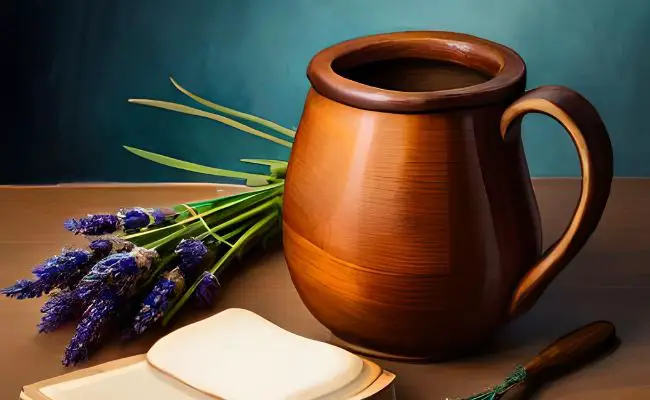Wooden cups have a unique charm and aesthetic appeal that adds a touch of elegance to any table setting. The choice of wood plays a crucial role in determining the durability, functionality, and overall quality of the cup. As an expert in the field, this article will delve into the various types of wood that are best suited for crafting wooden cups.
The Best Wood for Carving Wooden Cups
Carving wooden cups requires the use of specific types of wood that possess certain qualities. Closed-grain woods, such as oak, beech, and walnut, are considered some of the best choices. These woods are dense, durable, and known for their strength, making them suitable for creating long-lasting cups. They are less prone to splitting or warping, ensuring the cups maintain their shape over time. Additionally, closed-grain woods offer a smoother surface, enhancing the overall feel and appearance of the cup.
- Closed-grain woods like oak, beech, and walnut are ideal for carving wooden cups due to their density and durability.
- These woods provide strength and longevity to the cups.
- They offer a smooth surface, adding to the aesthetic appeal.
Other Wood Options for Wooden Cups
While closed-grain woods are popular choices, there are several other types of wood that can be used for crafting wooden cups. The choice depends on desired characteristics and wood availability. Some notable alternatives include cherry, basswood, cedar, black walnut, and birch.
- Cherry, basswood, cedar, black walnut, and birch are viable options for crafting wooden cups.
- The selection of wood depends on specific characteristics and wood availability.
Preferred Woods for Coffee Mugs
When it comes to coffee mugs, beech wood and maple wood are often recommended due to their exceptional properties. These woods are particularly suitable for coffee mugs because they are resistant to scratches, have low porosity, retain heat well, and prevent lingering tastes and odors.
- Beech wood and maple wood are ideal for coffee mugs due to their scratch resistance, low porosity, heat retention, and ability to prevent lingering tastes and odors.
- These woods ensure a pleasant coffee-drinking experience.
Importance of Sealants for Wooden Kitchenware
When purchasing wooden kitchenware, including wooden cups, it is crucial to ensure they have been properly sealed. Sealing the wood with a natural and/or food-safe oil creates a protective barrier that enhances durability and makes the cups safe for use with food and beverages. It also helps prevent the absorption of liquids, which could otherwise lead to staining or warping.
- Proper sealing with natural and/or food-safe oil is essential for wooden cups and other wooden kitchenware.
- Sealing enhances durability and safety.
- It prevents liquid absorption, staining, and warping.
Ideal Woods for Cutting Boards
While not directly related to cups, it is worth mentioning that the choice of wood for cutting boards is crucial for maintaining hygiene and preventing the growth of bacteria. Tight-grained domestic hardwoods, such as maple, birch, and beech, are the preferred options. These woods have smaller pores compared to open-grained woods like red oak, providing fewer hiding places for foodborne bacteria. This makes them easier to clean and maintain.
- Maple, birch, and beech are the recommended choices for cutting boards.
- Tight-grained hardwoods have smaller pores, making them less hospitable to bacteria.
- They are easier to clean and maintain compared to open-grained woods.
In conclusion, the selection of wood for crafting wooden cups is a crucial consideration. Closed-grain woods like oak, beech, and walnut are popular choices due to their density, durability, and strength. Alternatives such as cherry, basswood, cedar, black walnut, and birch can also be used depending on availability and desired characteristics. For coffee mugs, beech wood and maple wood are often preferred due to their resistance to scratches, low porosity, heat retention, and ability to prevent lingering tastes and odors. When purchasing wooden kitchenware, it is essential to ensure proper sealing with natural and/or food-safe oil. Finally, for cutting boards, tight-grained domestic hardwoods like maple, birch, and beech are ideal due to their smaller pores and ease of cleaning. With these considerations in mind, you can confidently select the best wood for your wooden cups, ensuring both beauty and functionality in your kitchen and dining experiences.

